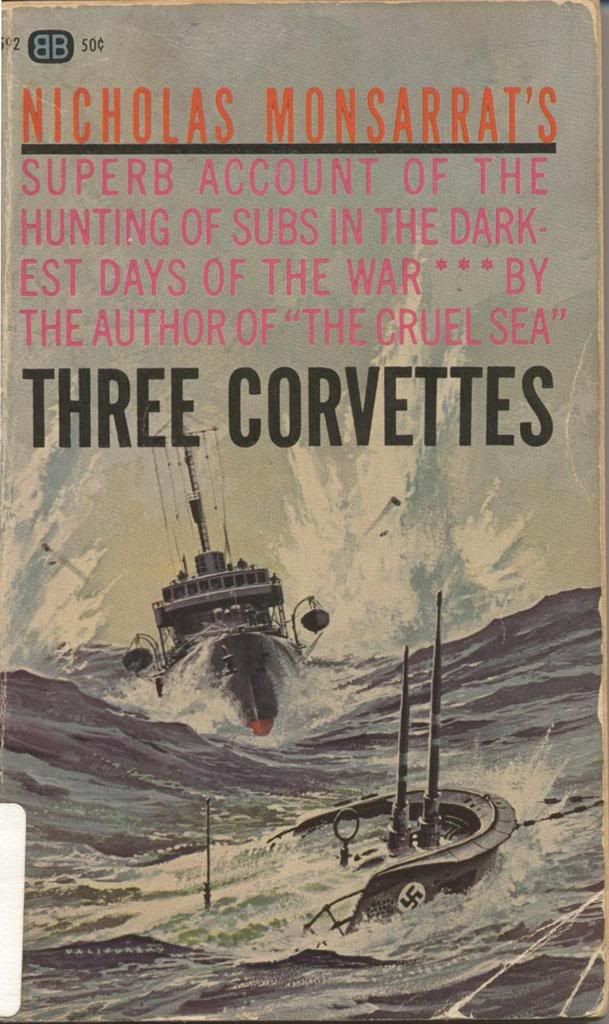
Three Corvettes is an autobiographical work written in the form of a log or journal during the time of Monserrat's service, from 1940 to 1943. It is uniquely written in a manner that avoids any censurship; thus Monserrat does not use actual names for people or vessels. Rather, for his companions he uses a single initial, and ship names are fictional, however they do relate to the actual ships he served on.
Monserrat entered the Royal Navy (RN) from the Royal Navy Volunteer Reserve (RNVR), a civilian component of the RN, his RNVR service was such that he was granted a commission as a junior lieutenant aboard an Atlantic escort Corvette as his first assignment. After performing well at that role he was promoted to the First Lieutenant of a second Corvette before moving to take command of his own ship for his third year in service.
Monserrat writes these three works in a unique observational writing style; as they are for the most part excerpts written during the course of his experiences they contain the flavor of shorter stories compiled into one big picture. Due to, I think, his unfamiliarity coming into the military world from civilian life, Monserrat provides the reader with a unique glimpse into the regimented military life, and conversely, the management of power by those who possess it. He writes of many observations that, to the professional naval officer might seem mundane, daily tasks, but to Monserrat and the reader both, they are new experiences, such as pecilular actions of the ordinary sailors, or the thrill of power whilst standing watch, having 750 tons of fighting men and machine answerable to your every command.
While this book can be hard to find because of it's age (published in 1953), and limited public reputation, it is nonetheless a wonderful read and insight into a little-known aspect of the Battle of the Atlantic in the Second World War.
No comments:
Post a Comment